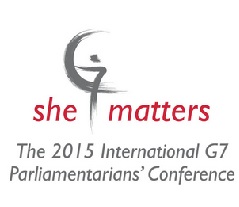
The UNESCO-UNEVOC International Centre: Who We Are | What We Do | Working With Us | Get in Touch
The UNEVOC Network: Learn About the Network | UNEVOC Network Directory
For Members: UNEVOC Centre Dashboard
Thematic Areas: Inclusion and Youth | Digital Transformation | Private Sector Engagement | SDGs and Greening TVET
Our Key Programmes & Projects: BILT: Bridging Innovation and Learning in TVET | Building TVET resilience | TVET Leadership Programme | WYSD: World Youth Skills Day
Past Activities: COVID-19 response | i-hubs project | TVET Global Forums | Virtual Conferences | YEM Knowledge Portal
Our Services & Resources: Publications | TVET Forum | TVET Country Profiles | TVETipedia Glossary | Innovative and Promising Practices | Toolkits for TVET Providers | Entrepreneurial Learning Guide
Events: Major TVET Events | UNEVOC Network News
 From 9 to 10 November 2015, 250 experts from over 50 countries met in Berlin, Germany, for a high-level conference on women’s empowerment. The conference, organised by the Federal Ministry for Economic Cooperation (BMZ) of Germany with support from Women’s World Banking in the context of Germany’s presidency of the G7, focused on the ways the economic empowerment of women can contribute to poverty and inequality alleviation, and contribute to sustainable economic growth. The conference delved into a number of salient issues including legal and social rights for empowerment, private sector engagement, the role of skills and TVET, and financial inclusion for empowerment.
From 9 to 10 November 2015, 250 experts from over 50 countries met in Berlin, Germany, for a high-level conference on women’s empowerment. The conference, organised by the Federal Ministry for Economic Cooperation (BMZ) of Germany with support from Women’s World Banking in the context of Germany’s presidency of the G7, focused on the ways the economic empowerment of women can contribute to poverty and inequality alleviation, and contribute to sustainable economic growth. The conference delved into a number of salient issues including legal and social rights for empowerment, private sector engagement, the role of skills and TVET, and financial inclusion for empowerment.
Katerina Ananiadou, Programme Specialist at UNESCO-UNEVOC, took part in one of the panel discussions held during the two-day conference. The panel discussion, titled ‘skills for empowerment’, addressed a number of key topics including: the role government, development agencies, the private sector and civil society can play to increase access to TVET for women and girls; successful approaches to improving professional qualifications of women and girls; and the potential of Information and Communications Technology (ICT) in improving TVET opportunities and outcomes.